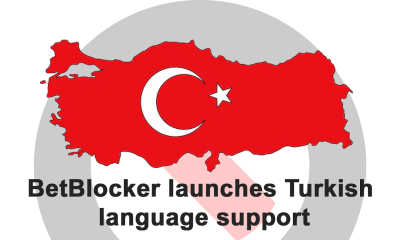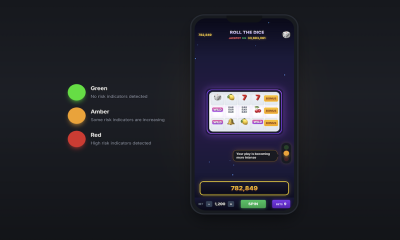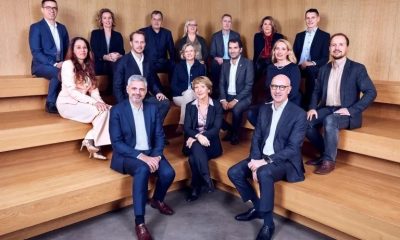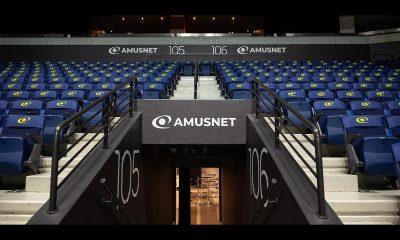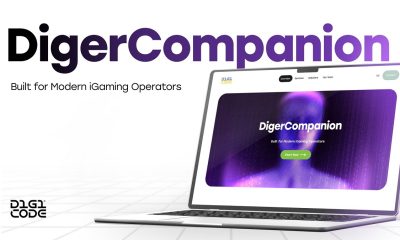Industry News
European Gaming Q3 Meetup Part II: The Importance of Company Culture in iGaming
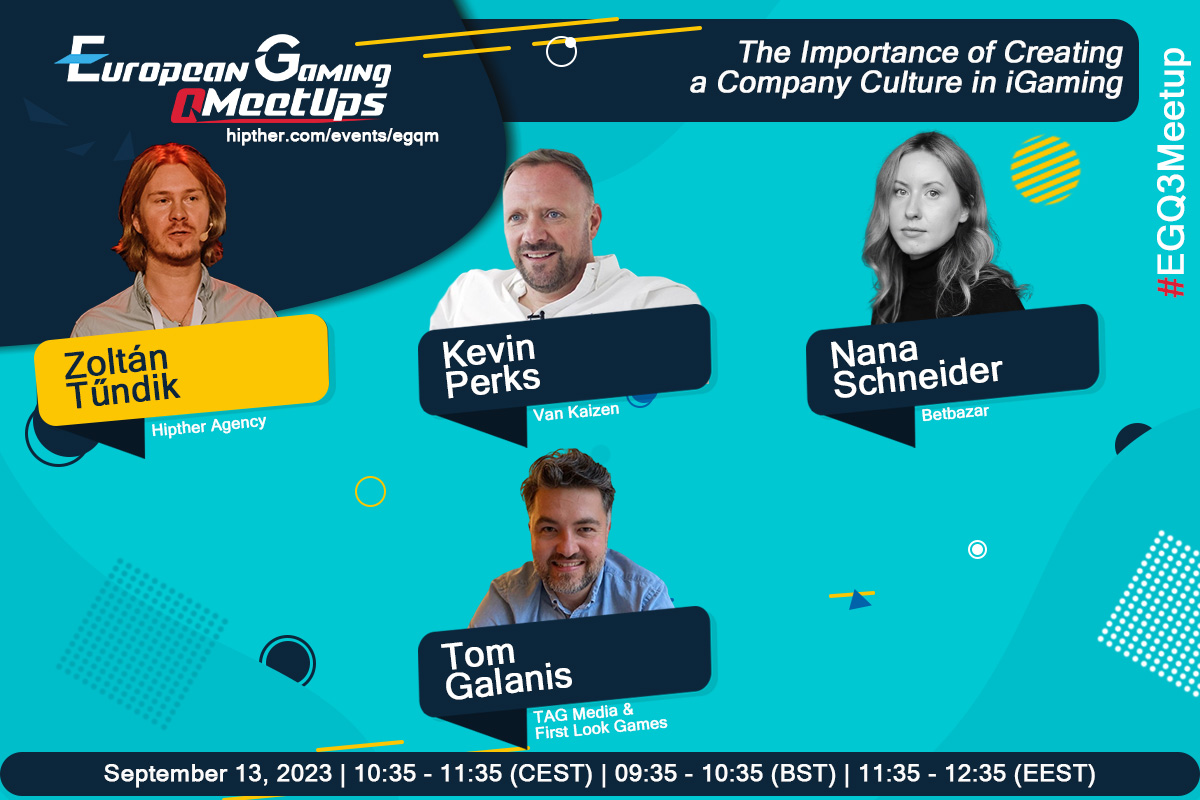
The European Gaming Q3 Virtual Meetup that took place on 13 September had it all: from Commercial Marketing and the Player Lifecycle, to Employer Marketing, Talent Acquisition and Retention, industry experts from the European iGaming scene provided insights in two informative and honest panels that no professional should miss! Read on and find the link to the Livestream recordings to watch the EGQ3 Meetup on YouTube!
The European Gaming Meetups by Hipther Agency are designed to keep you up-to-date with what is fresh in the European gambling industry.
The meetups feature several panel discussions per region and topics that are joined by key industry experts, CEOs, C-Level Executives, Business Development Managers, and sometimes government officials/regulators.
The European Gaming Q3 Virtual Meetup featured two thought-provoking panels: “Mastering the Player Lifecycle” and “The Importance of Company Culture in iGaming”.
Panel 2: “The Importance of Creating a Company Culture in iGaming”
Speakers: Kevin Perks, Senior Talent Acquisition Partner at Van Kaizen | Nana Shneider, HRD at BETBAZAR | Tom Galanis, CEO at TAG Media & First Look Games
Moderated by: Zoltan Tundik, Co-founder and Head of Business at Hipther
Watch the Panel Discussion on YouTube and HiptherTV!
The panel discussion promptly emphasized the pivotal role of fostering a positive company culture within the iGaming sector.
Nana Shneider, HRD at BETBAZAR, initiated the conversation by underlining the significance of motivation and growth in the workplace, recognizing the impact of personal lives on employees’ well-being. She stressed that a positive company culture can contribute to achieving a harmonious work-life balance.
Tom Galanis, CEO at TAG Media & First Look Games, shared insights from companies that operate as remote workplaces. He highlighted the indispensability of strong communication, especially in remote work settings. While attractive salaries can incentivize talent acquisition, Tom emphasized that for talent retention, a company must offer something unique that motivates individuals to work and grow within the organization.
Kevin Perks, Senior Talent Acquisition Partner at Van Kaizen, offered insights from a recruiter’s perspective. He emphasized the essence of company culture both in general and from the job seekers’ viewpoint. Interestingly, he noted that candidates typically inquire less about “superficial” perks like game rooms or ping-pong tables and focus more on company culture. Key questions revolve around whether a company is people-centric, if employees are trusted to perform their tasks without micromanagement, and if there are ample learning and development opportunities. Kevin also stressed that while talent attraction involves marketing communications, the foundation for retention begins with building honest and strong relationships with candidates during the recruitment phase, where the company culture and values play a vital role.

The discussion then delved into the contemporary workspace and remote work environments. The panelists explored the role of company culture in these settings.
Nana emphasized the importance of motivation and connection. She contended that companies must motivate employees by fostering a sense of unity and support, even among remote workers. Tom, with his experience leading remote-work companies, highlighted the challenge of forming meaningful connections in remote work settings. He emphasized that a strong company culture provides meaning and motivation in such environments.
Kevin pointed out that company culture is fundamentally what the business stands for, making it essential for companies to establish a clear culture. In remote settings, effective communication becomes even more critical, with middle managers playing a crucial role in shaping and maintaining company culture.
The discussion also touched on employer marketing and the challenges of conveying company culture in media within a remote work context. Nana highlighted the need for clarity and conciseness in messaging and values to reach everyone, regardless of diverse backgrounds. She emphasized the value of democracy and finding common ground between the company and employees. Tom emphasized honesty and trust as fundamental values, while Kevin reiterated that a positive company culture equates to a people-centric culture, with every individual responsible for creating a safe environment, upholding company values, and advocating for them.
Regarding leadership and company culture, Nana stressed that leaders set the tone for the company and are crucial not only for business development but also for employee growth. Tom echoed this sentiment, emphasizing the importance of leaders displaying soft skills and prioritizing training tools while fostering empathy in interactions with employees. Kevin agreed and reinforced the significance of managers in establishing company culture, emphasizing the promotion of people not just for task completion but also for their people management skills.
Lastly, the discussion explored changes companies can implement to promote a positive company culture. Nana emphasized the importance of companies attending to employees’ needs, embracing flexibility, and fostering communication through calls, discussions, and meetings between top management and employees. Tom urged leaders and management to revisit their vision and culture, offering support and assistance to employees. Kevin emphasized that candidates now closely scrutinize a company’s culture during the recruitment process. They seek signs of culture, which are often not evident in a company’s media communications. Thus, the recruitment process and the relationships established during it are vital.
In conclusion, the panelists underscored that people should be at the heart of company culture, enabling them to derive satisfaction from their work and personal growth. They emphasized that everyone within a company shares the responsibility for shaping its culture.
Read more about the first part of this exciting and informative edition of the European Quarterly Meetups, a panel discussion on Company Culture in iGaming!
BetBlocker
New Turkish-language tool from BetBlocker extends service to 90 million additional people
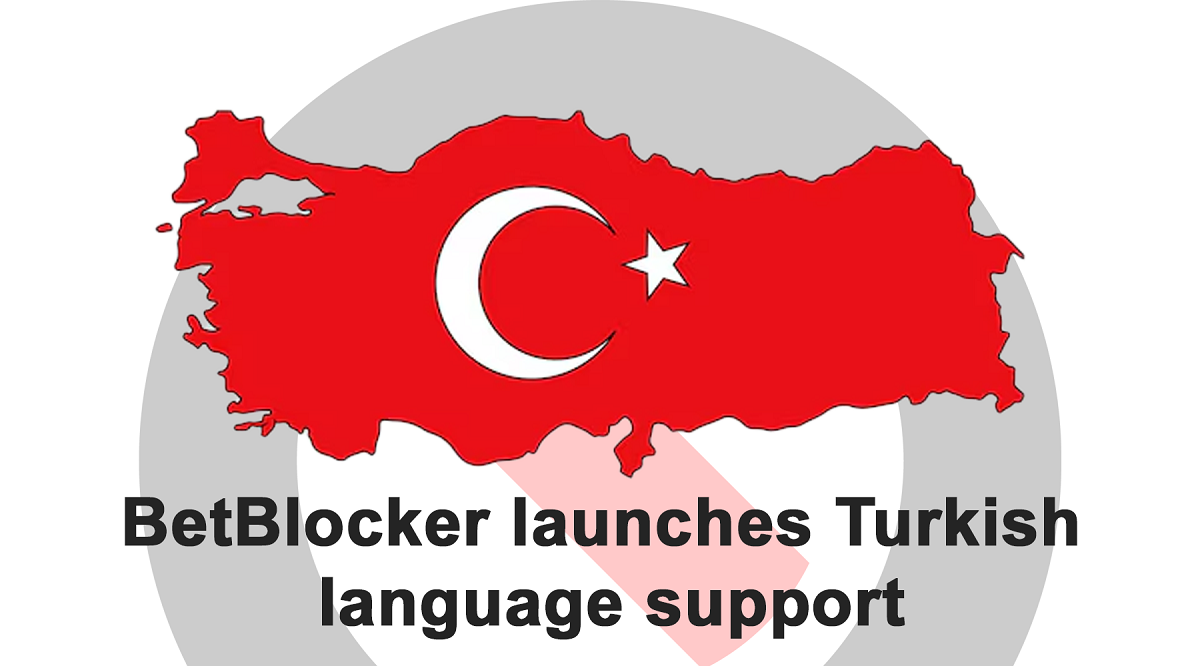
Gambling harm prevention charity BetBlocker today reveals the extension of their award-winning assistance into Turkish.
In 2025, BetBlocker saw a tremendous increase in support, with more than three hundred thousand individual users initiating a block throughout the year. This significant level of engagement has been made possible by the diverse array of languages into which the charity has translated its assistance.
Yesilay, the main Turkish support service, reports that requests for help with gambling are now surpassing those for alcohol, drugs, or tobacco, alongside significant uptake and harm among youth, making the launch of Turkish language support timely and relevant.
Founder and Trustee for BetBlocker, Duncan Garvie, offered these comments: “BetBlocker is genuinely excited to roll out our second language expansion of 2026.
We’ve experienced phenomenal uptake of the service over the last 12 months and figures hare steadily rising. One of the biggest drivers of that growth has been improving the accessibility of our support by meeting users where they are and offering support in the language that they’re most comfortable accessing in.
Alongside Turkey itself, there are substantial Turkish speaking communities across Europe, the Middle East and North America. It is our hope that this evolution of BetBlocker will ensure that a deeper level of support is available more widely across the Turkish diaspora.
BetBlocker would like to offer our deepest thanks to Fatmatuz Zehra Pehlivan, a Clinical Psychologist and researcher, who volunteers Green Cresent in the field of addiction treatment. Fatmatuz volunteered her time to help translate our app, and every Turkish language user we support owe her their thanks for the donation of her time and expertise.
As with many of the communities BetBlocker now supports, we would not be able to reach so many people without the kindness and generosity of field experts like Fatmatuz.”
The post New Turkish-language tool from BetBlocker extends service to 90 million additional people appeared first on Eastern European Gaming | Global iGaming & Tech Intelligence Hub.
Anastasia Rimskaya Chief Account Officer at Aviatrix
Aviatrix Launches New Loot Boxes to Deepen Progression and Reward Paths

Aviatrix has launched a new Loot Box feature for its premier crash game, presenting collectible rewards, free bets, and progression bonuses aimed at boosting long-term player engagement.
Loot Boxes are granted through a daily rewards mechanism, with players obtaining them according to their in-game actions and advancement. Every box holds a variety of rewards, such as aircraft skins, complimentary bets, and aviation experience points.
The feature enhances Aviatrix’s developing loyalty system, providing players with fresh options to personalize their aircraft and earn rewards through continuous engagement.
Anastasia Rimskaya, Chief Account Officer at Aviatrix, said: “Loot Boxes are part of our wider vision for Aviatrix as a connected multi-game universe. As we expand our iGaming Metaverse, features like Loot Boxes add another meaningful layer to how players build their profile, customise their aircraft and earn rewards across the ecosystem.”
Unveiled in February, the Aviatrix iGaming Metaverse signifies the supplier’s shift from a standalone crash game to an integrated multi-title ecosystem.
Starting with the imminent debut of Aviatrix Second Chance and continuing with upcoming titles like Aviatrix Fruits and Aviatrix Mines, every game will utilize a single integrated player profile, progression system, and rewards and achievements framework.
The post Aviatrix Launches New Loot Boxes to Deepen Progression and Reward Paths appeared first on Eastern European Gaming | Global iGaming & Tech Intelligence Hub.
Alec Gehlot Chief Executive Officer at PlaySignal
PlaySignal Debuts: Alec Gehlot’s New Sophisticated Responsible Gaming Platform
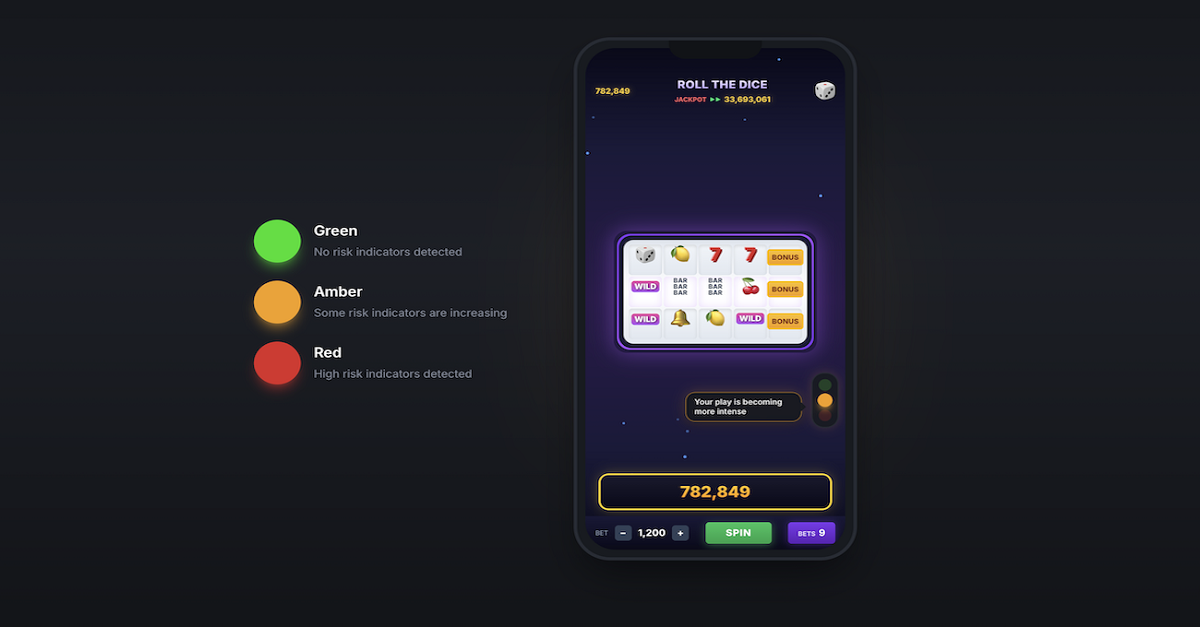
Alec Gehlot, previous senior executive at Optimove, has introduced PlaySignal, a responsible gaming platform aimed at assisting operators in identifying and addressing player risk promptly.
PlaySignal employs a traffic-light system featuring green, amber, and red signals to steer player conduct and indicate when behaviors start to enter higher-risk areas. The platform seeks to minimize avoidable exclusions by offering operators enhanced visibility of rising risks, while simultaneously giving players more understanding of how their actions are evaluated.
Leveraging behavioural analytics, PlaySignal tracks player actions during gameplay and displays information as distinct signals. This allows teams to act earlier and react more appropriately as risk evolves.
The product connects with current operator systems to assist responsible gaming, CRM, and compliance teams by providing a unified view of activities, encouraging a more uniform strategy among teams as regulatory demands grow in important markets.
Building on his time at Optimove, where he collaborated with operators on segmentation, retention, and user engagement, Gehlot recognized a demand for innovative tools to enhance player protection as regulatory and tax pressures mount in regulated markets.
The company launched PlaySignal at ICE earlier this year, where it was a contender in the Innovators Challenge, and initiated talks with operators in various markets. The initial launch will concentrate on the UK prior to global expansion.
Alec Gehlot, Chief Executive Officer at PlaySignal, said: “Regulation and taxation are only moving in one direction, and operators need new tools to adapt. Player protection can no longer be treated as a compliance obligation; it has to become a competitive differentiator.
“Regulated operators are under real pressure, particularly in the UK, and we believe giving them earlier visibility of risk is essential not just for protection, but for long-term sustainability.”
The post PlaySignal Debuts: Alec Gehlot’s New Sophisticated Responsible Gaming Platform appeared first on Eastern European Gaming | Global iGaming & Tech Intelligence Hub.
-

 Baltics6 days ago
Baltics6 days agoHIPTHER Baltics Launches in Vilnius with Agenda Revealing Lithuania’s 2026 Regulatory Reset
-

 Andrew Cardno6 days ago
Andrew Cardno6 days agoQCI Launches its Data Community Platform in Australia
-

 Amusnet6 days ago
Amusnet6 days agoAmusnet Enters into Strategic Partnership with Twinsbet Arena in Vilnius, Lithuania
-

 Latest News6 days ago
Latest News6 days agoSpinomenal Debuts Magical Genie — 3×3 Hold & Hit Adventure
-

 AI-Powered Compliance and Player Support6 days ago
AI-Powered Compliance and Player Support6 days agoDigerCompanion — Digicode’s AI Solution for Compliance and Player Support in Regulated iGaming
-

 Brazil6 days ago
Brazil6 days agoOctoplay Enters Brazilian Market Through a Strategic Partnership with Superbet
-

 Free spins6 days ago
Free spins6 days agoOnlyPlay Releases Pub Fruits
-

 BIS SIGMA6 days ago
BIS SIGMA6 days agoBrazil between expansion and fiscal pressure



